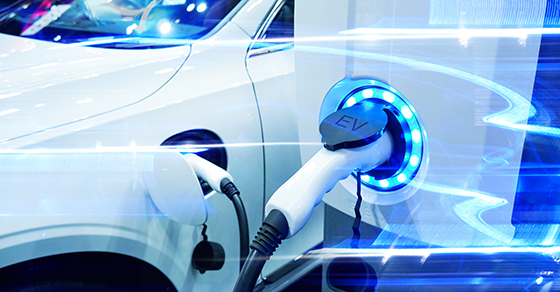The Clean Vehicle Credit comes with caveats – part two

The Inflation Reduction Act (IRA) includes various tax incentives to reduce the severe effects of climate change. The Qualified Plug-in Electric Drive Motor Vehicle Credit Expansion (IRC Section 30D) is one of the elements that is receiving significant attention. You may know it as the Clean Vehicle Credit.
Although the increased credit appears encouraging, concerns have arisen regarding how quickly it will take effect. Below – and in part one of this blog post – is what you should know about the credit if you’re considering buying an electric vehicle (EV).
Potential hurdles of the Clean Vehicle Credit
Critical minerals and battery components must meet “applicable percentage” requirements set by the IRA. Critical minerals must be at least 40% recycled in North America or processed or mined from the United States, another country with whom it has a free trade agreement, or both. A minimum of 50% of the battery’s parts must be produced or built in North America.
The IRA requirements provide that the IRS must issue proposed guidance by December 31, 2022. At this point, the first percentages will go into effect. The percentages then increase gradually over time. They reach a peak of 80% of essential minerals and 100% of battery components after 2026 and 2028, respectively.
Additionally, the credit is not accessible for vehicles using battery or essential mineral components made by a “foreign entity of concern,” such as China or Russia. Vehicles put into service after 2024 are subject to the critical mineral exclusion. The battery component exclusion is in effect for cars put into service after 2023.
The car sector is concerned about these regulations since China accounts for a sizable portion of the minerals and battery parts supply chain.
Transitional relief for purchasers
Say you made a contract for an EV before the implementation of the IRA on August 16, 2022. But what if you haven’t yet gotten the vehicle? According to the IRS, the legislative changes won’t impact your tax credit. The policies in force when you signed the purchase contract allow you to make a claim.
Sadly, this means that the manufacturer cap will still be in effect. As a result, you are ineligible for the EV credit if you buy a car from a producer who passed the 200,000 vehicle mark more than a year ago. The necessity for final assembly, however, won’t be applicable.
The only change to the previous regulations for people who buy and take possession of a qualifying EV after the August 15th bill signing but before January 1, 2023, is the application of the final assembly requirement. That implies that your purchase would likewise be subject to the manufacturer cap. Therefore, if you have an interest in a model that isn’t permissible under the cap, it may be wise to wait until 2023.
New credits for used and commercial vehicles
Additionally, the IRA establishes tax credits for commercial EVs (Sec. 45W) and used EVs (Sec. 25E), both of which take effect in 2023. The IRS will make more details about these credits public in the upcoming months.
The IRA says the Sec. 25E credit is worth the lesser of $4,000 or 30% of the sale price of an eligible car. The selling price may not go over $25,000. Only EVs with model years at least two years older than the year of purchase are eligible for the credit. If the taxpayer’s MAGI for the year of the purchase or the year prior, whichever is lower, exceeds:
- $75,000 for single filers
- $150,000 for married couples filing jointly
- $112,500 for heads of household
For commercial EVs, the credit is equal to the lesser of 15% of the vehicle’s basis (or 30% for non-gas or diesel-powered vehicles) or the difference between the vehicle’s cost and that of a comparable gas or diesel-powered vehicle. The maximum credit per vehicle is $7,500 for vehicles with a gross vehicle weight of under 14,000 pounds and $40,000 for heavier vehicles.
Only the beginning for clean vehicle change
In the upcoming weeks and months, the IRS and Treasury Department have vowed to provide more clarification regarding the many new and ongoing EV-related tax credits. We’ll inform you of any further updates. Contact our RRBB accountants and advisors if you have questions about the Inflation Reduction Act or any other tax matter.
© 2022
RRBB eNEWSLETTER
Get free tax planning and financial advice




